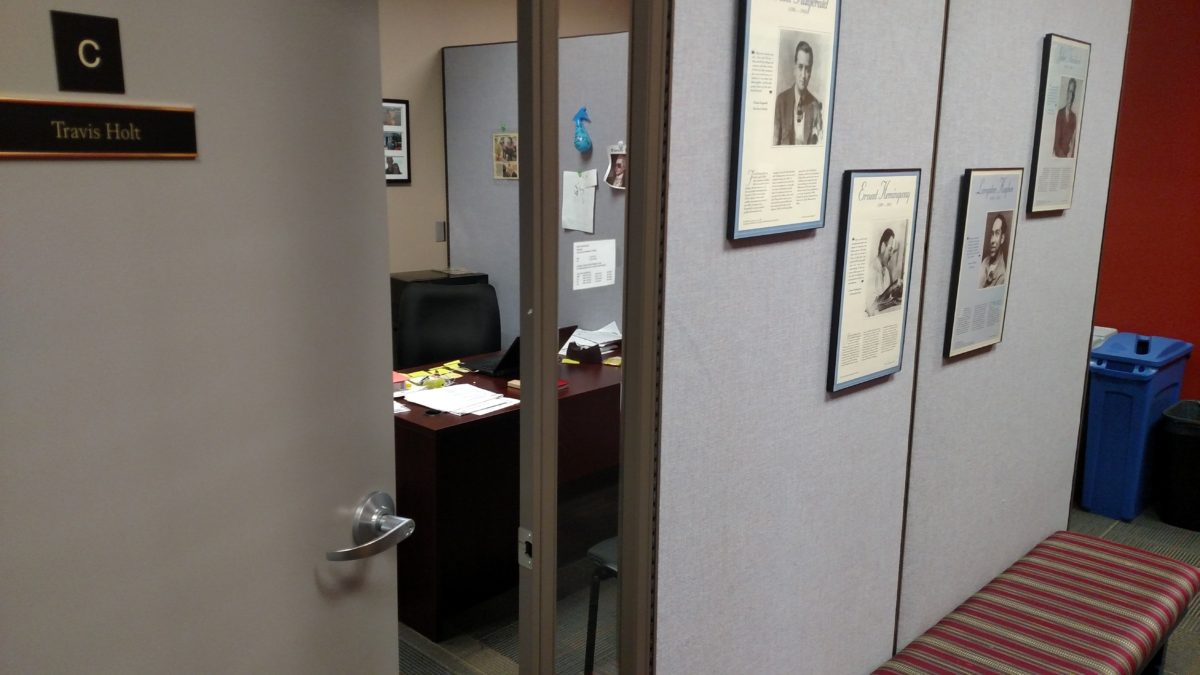
First, I did not select this article just because it said “Epistemology” in the title; rather, I identify with Kincheloe’s approach to pedagogy and how it ties into my research interests. Kincheloe’s notoriety stems from his work in education, specifically connecting with constructivism. In “A Critical Complex Epistemology of Practice,” he defined and explained the Critical Complex Pedagogy, one that follows the constructivist principles of knowledge that exists in the constructs we create. The issue he addressed is one that is not uncommon for many disciplinary fields, including English Studies: the division that has and still exists between practitioners/educators and researchers. He criticized the formalist model, one that resembled more of a linear assembly line-type of movement where scholarship from researchers informed institutions and its educators, who then implemented the theories in the classrooms for the students to receive. Lacking the reciprocity that would have informed and benefited both educators and researchers, this reductionist approach oversimplified the sociocultural complexities, those presented by the students, educators, institution, and technology, within the classroom and essentially “deprofessionalized the teachers” (Kincheloe, 2006, p.222). Researchers only provided “solutions disassociated from the perils of professional practice” (Kincheloe, 2006, p.225) in an effort to find the most effective way to improve test scores and make this process appear “successful.” Thus, Kincheloe (2006) called for more awareness of how research, knowledge, and practice intersect in what he terms the “bricolage” (p.225), where educators and scholars could work together to identify issues present that may have been disguised previously with the normalcy of the system.
While this article does not specifically discuss English Studies, Basic Writing, or any specific discipline, the importance lies in constructivism, recognizing the complexities that exist in the classroom and the importance of social contextualization. In my own research, I must consider the contextual factors of any Objects of Study I might focus on. Moreover, the definition of basic writers is local, meaning across the academy there is not a clear, universal method of defining them, yet our definition of them derives from particular sociocultural factors present. Simply overlooking these complexities would be the oversimplification Kincheloe (2006) warned against. He also stressed how isolating each part—student, class, curriculum, teacher, researcher—may generate numbers that appear to indicate success, but they actually show an epistemological issue where the knowledge generated appears to be “true” but is removed from the full context and thus misleading as to whether any changes to curriculum and practice is efficacious. Kincheloe (2006) commented on why oversimplification happens: “Simplicity sells, complexity doesn’t” (p.228). The language of administration is that of numbers, but more concern should be given as to how we generate those numbers.
I agree with Kincheloe’s (2006) views regarding how scholars should view the educational setting and the many contributing factors—social, political, cultural—that shape it. As we change, it changes, and without acknowledging this, we create, at the very least, incomplete truths. If I am examining if transfer occurs between social media and classroom writing for basic writers, then I must begin with the factors that contribute to a definition of each but also how the interaction between them affects those identities. Basic writers alone reveal the web of sociocultural complexities in order to reach a definition, but a social media site such as Facebook would also include additional complexities; thus, the interaction of the two, inside and outside of the classroom, creates new identities for each. Limiting my OoSes will make this more manageable, but it will not be simple.
Interview with Joe Kincheloe by Freire Project:
Reference
Kincheloe, J. (2011). A Critical Complex Epistemology of Practice. Counterpoints, 352, 219-230. Retrieved from http://www.jstor.org/stable/42980820
